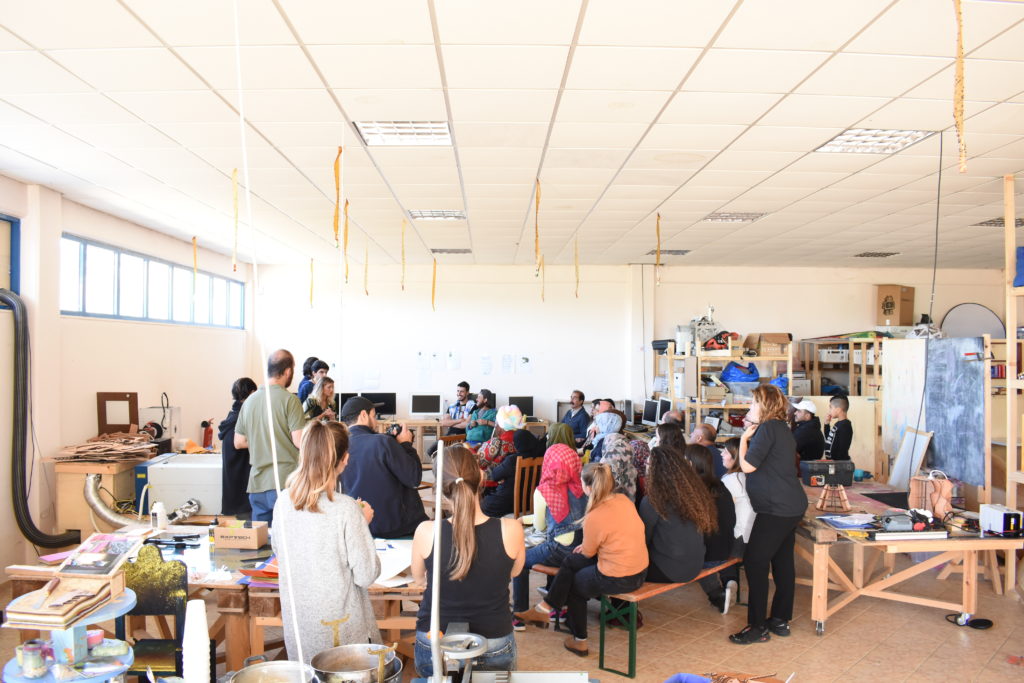by Rory O’Keeffe

Tens of thousands of men, women and children who have arrived in Greece in the last two years to escape war, terror and chaos in their homelands, must now take the first steps to joining Greek society.
But as newcomers to the state, how will they know how, or even what they need, to do so?
In Ioannina on Sunday, refugees from Syria, Iran, and one lady from Cameroon, gathered at Habibi.Works for a session designed to help them find out, and get them ready for their first steps towards a new life as a member of Greek society.
Forty refugees from Agia Eleni refugee centre came to the event, where they were joined by representatives from Second Tree – an organisation formed to ‘partner’ Greek people with Greece’s newest citizens, to help them to take their place in Greek society – local people from Ioannina and Katsikas, and Cleopatra Papakitsou of KEAN Ioannina, the local branch of an information assistance centre for refugees, asylum seekers and other vulnerable groups in Epirus.
There are 63,000 refugees in Greece, and with the EU refugee relocation plan (which promised to relocate 66,400 people from Greece between September 2015 and September 2017, but actually moved just 19,747) finished, all those who gain asylum in the EU, will be granted it in Greece.
And the process is underway, with thousands of people expected to leave the current ‘refugee camp and accommodation’ system in the next six to twelve months.
Mimi Hapig, a member of Soup and Socks, which set up Habibi.Works, and the centre’s coordinator, said: ‘We’re very happy to have hosted this event. It’s extremely important, because coming to a new state under any circumstances is challenging, and of course the men, women and children who have fled their countries have experienced a great deal more stress and pressure than others have.
‘Now that the process of the people gaining full citizenship and starting an independent life again is underway, it’s vitally important that everyone receives information about what they have to do to be able to live here, from how to access health services and education, to why it’s important to get a tax number, and what you cannot buy or subscribe to without one.
‘Today was a chance for people to do that, and to interact with other people who live here. It’s a good first step for everyone.’
